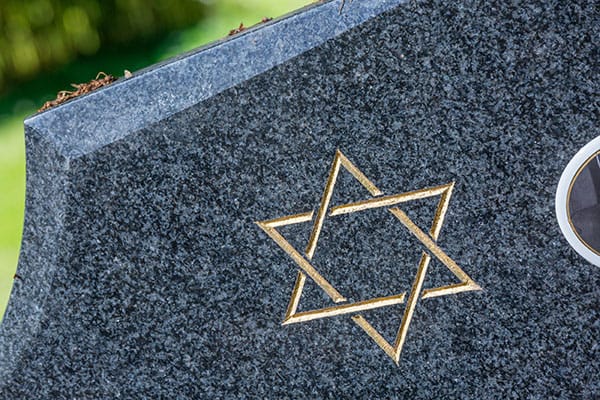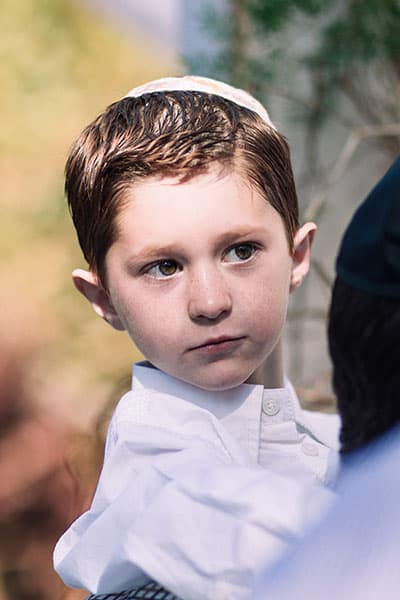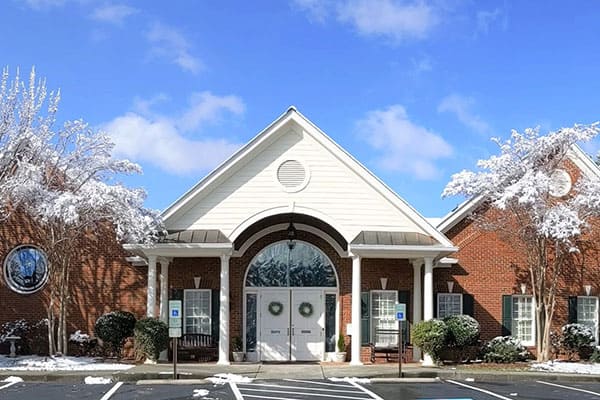Jewish Funeral Traditions
Jewish tradition teaches that humans are created in the image of God. This is what makes up all the customs and rituals of a Jewish funeral.
A Jewish funeral consists of a burial (also known as an interment). Cremation is forbidden. Burial is to allow the body to decompose naturally, therefore embalming is also forbidden. Jewish tradition teaches the body should be buried in a simple, biodegradable casket, made entirely of wood- with no nails.
There is no viewing with a Jewish Funeral. To honor the deceased, the casket is kept closed. Friends and family are not allowed to see the person that has passed.
Out of respect, the deceased is never left alone from the time of death until the funeral. Family members or volunteers from the Jewish community sit with deceased, often reading psalms, until burial.
The time between death and burial in not long. Traditionally, the burial takes place within 24 hours of death. Burials never take place on the Sabbath or on holidays.
Music and flowers are not allowed at a Jewish funeral.

Our Jewish Burial with Graveside Services Include:
- Professional Services
- Transfer of Deceased
- Tahara and Preparation by Chevra Kadisha
- Traditional Basic Wood Casket
- Hearse
- Graveside Service
Helpful Jewish Funeral Information and FAQs
What takes place at a Jewish Funeral?
Customs and traditions at a Jewish funeral can vary depending on the community and the person officiating the service. Usually, a member of the clergy officiates.
The following is what usually takes place at a Jewish funeral:
- Gathering and Procession of the mourners – The mourners usually do not greet attendees until after the burial. The mourners are usually in a separate room and do not enter until the service is about to begin. Then they are ushered into the service and seated in the front rows.
- Keriah (tearing) – The officiant will place a black ribbon on the outer garment of the mourners, just before the service begins. The officiant will explain that the act of tearing it off is a symbol of the tear in the fabric of the family after the death of the loved one and also, we need to do something physical to express our grief.
- Opening Prayers – The service will usually begin with the reading of Biblical passages. This is followed by silent prayer.
- Hespeid (eulogy) – The purpose of the hespeid is to honor the deceased and to also comfort the mourners. A rabbi or cantor are trained to take information about the deceased and put it together to paint a picture of the life lost. Sometimes family members and close friends will also say a few words.
- El Malei Rachamim – This is a prayer that is chanted and mentions the deceased by their Hebrew name and states they are “sheltered beneath the wings of God’s presence.”
- The recession of Family Members – The family will usually exit the chape and retire to a separate room in preparation for the funeral procession.
- Removal of Casket – After the family leaves, the pallbearers will escort the casket from the room.
- Procession to Cemetery – A funeral procession from the chapel is formed by all vehicles of attendees. It is considered to be important to accompany a person to their final resting place.
Location of Service
Jewish funerals take place in a variety of locations. Some funerals take place at the graveside while others can occur in multiple locations, starting at the synagogue or funeral home and then ending at the cemetery.
Mourners/Avelim
Jewish mourners have responsibilities. Jewish tradition says that parents, children, spouses, and siblings are designated as mourners. This doesn’t mean that others do not grieve the loss as well but Avelim has roles to perform in the funeral service, the days preceding and the months following.
What You Should Wear to a Jewish Funeral?
Usually, men are asked to wear a skullcap and women a head covering to a Jewish funeral. Black or dark colors are appropriate as well as suits, dresses, and business attire.
At the Gravesite
Jewish funeral etiquette suggests that family members help to fill the grave with dirt. They will take a shovel full of dirt and drop it onto the casket. This is thought to help bring closure to the family.

Plan Ahead Today
Pre-planning the funeral experience for your loved ones provides you with time to make end-of-life decisions in a calm and rational atmosphere. Start the online planning process now, or meet with one of our pre-planning advisors.
Choosing a Raleigh Funeral Home
While it is not mandatory to hire a funeral director, a professional makes the process much easier.
Most families choose to use a funeral home because of the standard of care and the regulations around the handling of the deceased.
It is important to choose a funeral home that will listen to your wishes and work with you to make sure what you want is carried out.
Funeral homes can work with different budgets and add special touches to personalize the funeral.

